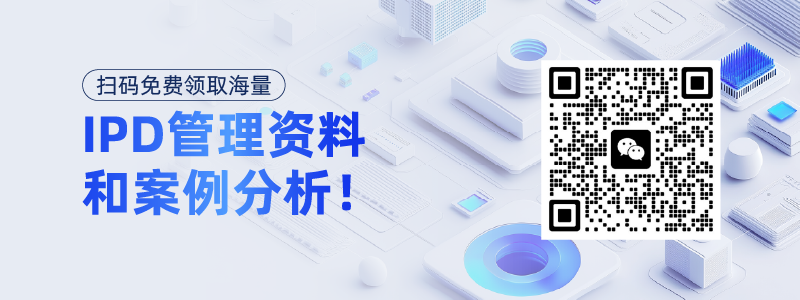ZenTao
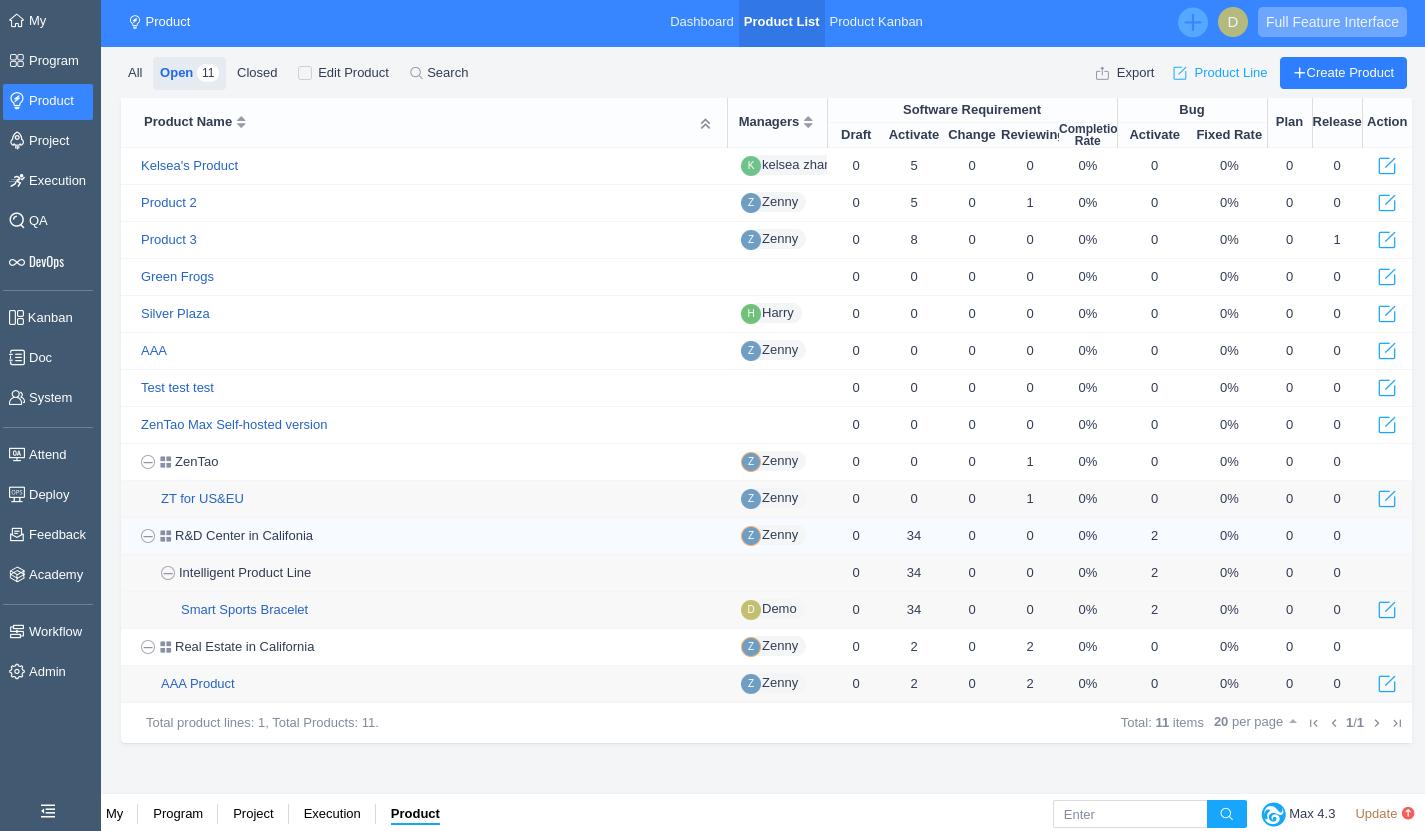
ZenTao is a comprehensive project management tool that is particularly popular in China but is gaining traction globally. It offers a wide range of features that cater to various aspects of project management, including task decomposition, bug tracking, and agile development. ZenTao's intuitive interface makes it easy for teams to break down projects into smaller tasks, assign responsibilities, and set deadlines. The tool also supports multiple project views, such as Kanban boards and Gantt charts, which are invaluable for visualizing project progress and dependencies.
One of the standout features of ZenTao is its robust bug tracking system. This is particularly useful for software development projects, where identifying and resolving bugs quickly is crucial. ZenTao's integration with version control systems like Git and Subversion further enhances its functionality, making it an ideal choice for development teams. Additionally, ZenTao offers a self-hosted option, which provides organizations with greater control over their data and security.
For teams looking to adopt an agile approach, ZenTao's support for Scrum and Kanban methodologies is a significant advantage. The tool allows teams to create sprints, track story points, and monitor velocity, all within a single platform. This holistic approach to project management ensures that teams can effectively decompose tasks, manage workloads, and deliver projects on time and within budget.
Asana
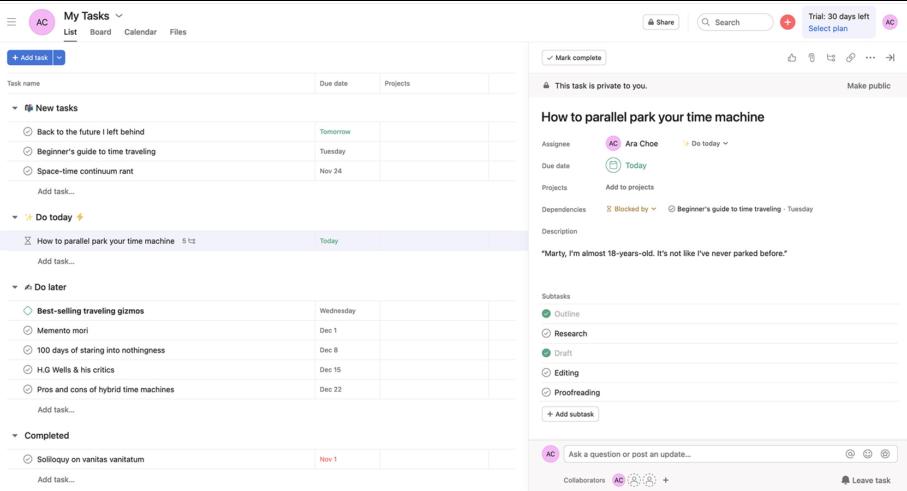
Asana is a widely-used project management tool that is known for its simplicity and versatility. It is particularly effective for task decomposition, allowing teams to break down projects into smaller tasks and subtasks with ease. Asana's user-friendly interface and robust features make it a popular choice for teams of all sizes, from small startups to large enterprises. The tool supports various project views, including lists, boards, and timelines, which provide different perspectives on project progress and task dependencies.
One of the key strengths of Asana is its collaboration features. Teams can communicate directly within tasks, attach files, and leave comments, ensuring that all relevant information is centralized and accessible. This is particularly useful for distributed teams, where effective communication is essential. Asana also integrates with a wide range of other tools, such as Slack, Google Drive, and Microsoft Teams, further enhancing its functionality and making it a versatile solution for project management.
For teams looking to adopt a more structured approach to task decomposition, Asana's templates and workflows are invaluable. The tool offers a variety of pre-built templates for different types of projects, such as marketing campaigns, product launches, and software development. These templates can be customized to fit the specific needs of a project, ensuring that teams can effectively plan and execute their work. Additionally, Asana's reporting and analytics features provide valuable insights into project performance, helping teams to identify areas for improvement and make data-driven decisions.
Smartsheet
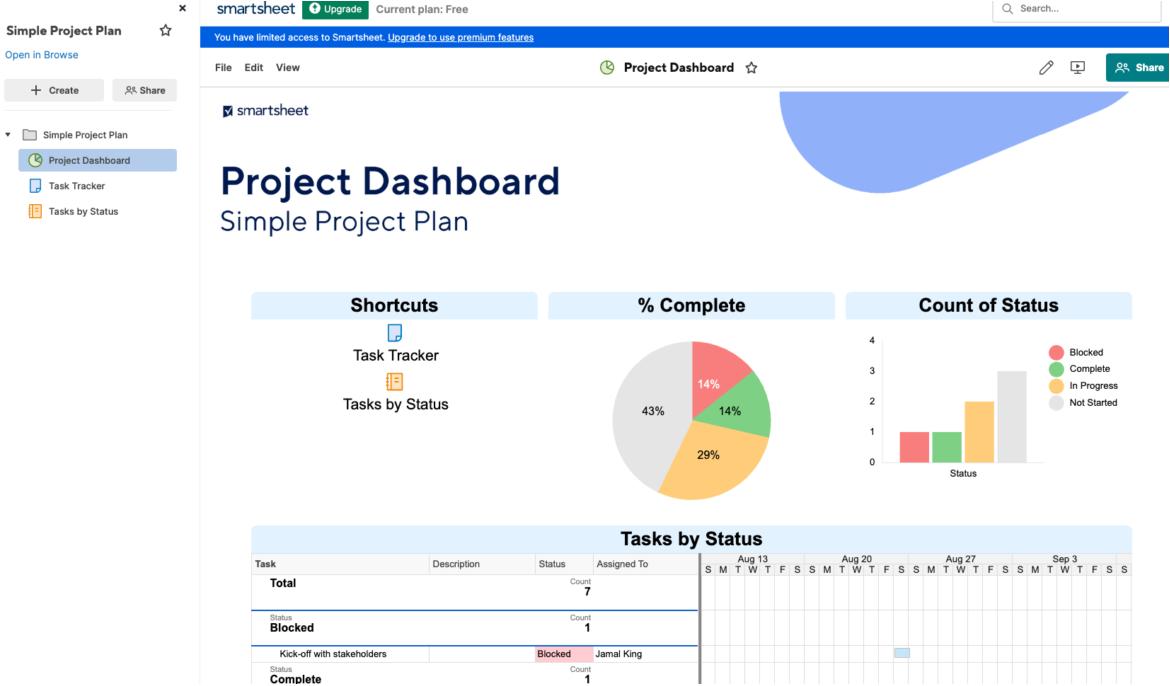
Smartsheet is a powerful project management tool that combines the flexibility of a spreadsheet with the functionality of a project management platform. It is particularly effective for task decomposition, allowing teams to break down projects into smaller tasks and subtasks with ease. Smartsheet's intuitive interface and robust features make it a popular choice for teams looking to manage complex projects with multiple dependencies and stakeholders. The tool supports various project views, including Gantt charts, calendars, and card views, which provide different perspectives on project progress and task dependencies.
One of the standout features of Smartsheet is its automation capabilities. Teams can set up workflows and rules to automate repetitive tasks, such as task assignments, status updates, and notifications. This not only saves time but also reduces the risk of human error, ensuring that projects are executed smoothly and efficiently. Smartsheet also offers a wide range of integrations with other tools, such as Salesforce, Microsoft Project, and Jira, further enhancing its functionality and making it a versatile solution for project management.
For teams looking to adopt a more collaborative approach to task decomposition, Smartsheet's collaboration features are a significant advantage. The tool allows teams to share files, leave comments, and assign tasks directly within the platform, ensuring that all relevant information is centralized and accessible. Additionally, Smartsheet's reporting and analytics features provide valuable insights into project performance, helping teams to identify areas for improvement and make data-driven decisions. This holistic approach to project management ensures that teams can effectively decompose tasks, manage workloads, and deliver projects on time and within budget.
Planisware
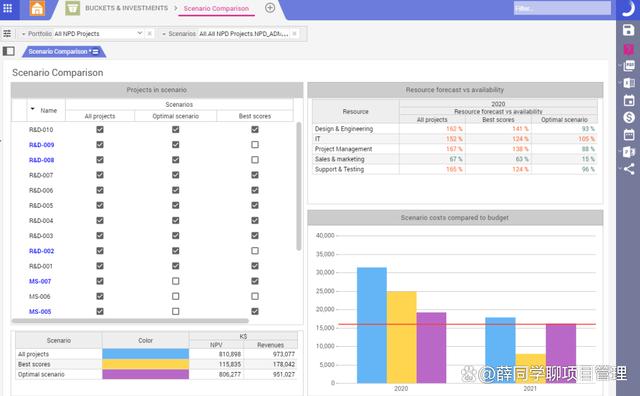
Planisware is a sophisticated project management tool that is particularly well-suited for large enterprises and complex projects. It offers a wide range of features that cater to various aspects of project management, including task decomposition, resource management, and portfolio management. Planisware's advanced capabilities make it an ideal choice for organizations that require a high level of customization and control over their project management processes. The tool supports various project views, such as Gantt charts, resource histograms, and portfolio dashboards, which provide different perspectives on project progress and task dependencies.
One of the standout features of Planisware is its robust resource management capabilities. The tool allows teams to allocate resources, track utilization, and manage capacity, ensuring that projects are staffed appropriately and that resources are used efficiently. This is particularly useful for large enterprises with multiple projects and complex resource requirements. Planisware also offers a wide range of integrations with other tools, such as ERP systems, financial management software, and collaboration platforms, further enhancing its functionality and making it a versatile solution for project management.
For teams looking to adopt a more strategic approach to task decomposition, Planisware's portfolio management features are a significant advantage. The tool allows organizations to prioritize projects, allocate budgets, and track performance across multiple portfolios, ensuring that resources are aligned with strategic objectives. Additionally, Planisware's reporting and analytics features provide valuable insights into project performance, helping teams to identify areas for improvement and make data-driven decisions. This holistic approach to project management ensures that teams can effectively decompose tasks, manage workloads, and deliver projects on time and within budget.
Targa
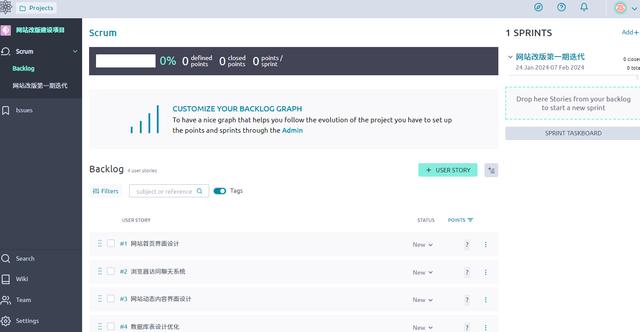
Targa is a project management tool that is particularly well-suited for engineering and construction projects. It offers a wide range of features that cater to various aspects of project management, including task decomposition, document management, and collaboration. Targa's advanced capabilities make it an ideal choice for organizations that require a high level of customization and control over their project management processes. The tool supports various project views, such as Gantt charts, resource histograms, and portfolio dashboards, which provide different perspectives on project progress and task dependencies.
One of the standout features of Targa is its robust document management capabilities. The tool allows teams to store, share, and version control documents, ensuring that all relevant information is centralized and accessible. This is particularly useful for engineering and construction projects, where managing large volumes of documentation is a critical aspect of project success. Targa also offers a wide range of integrations with other tools, such as CAD software, ERP systems, and collaboration platforms, further enhancing its functionality and making it a versatile solution for project management.
For teams looking to adopt a more collaborative approach to task decomposition, Targa's collaboration features are a significant advantage. The tool allows teams to share files, leave comments, and assign tasks directly within the platform, ensuring that all relevant information is centralized and accessible. Additionally, Targa's reporting and analytics features provide valuable insights into project performance, helping teams to identify areas for improvement and make data-driven decisions. This holistic approach to project management ensures that teams can effectively decompose tasks, manage workloads, and deliver projects on time and within budget.
Paymo
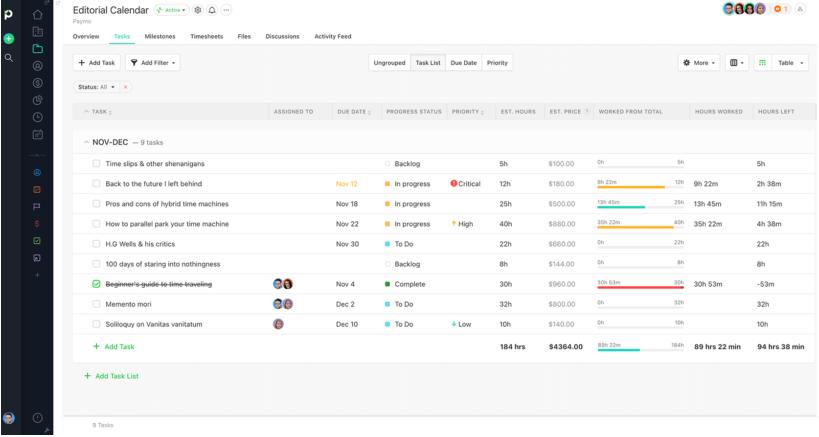
Paymo is a project management tool that is particularly well-suited for small to medium-sized businesses. It offers a wide range of features that cater to various aspects of project management, including task decomposition, time tracking, and invoicing. Paymo's intuitive interface and robust features make it a popular choice for teams looking to manage complex projects with multiple dependencies and stakeholders. The tool supports various project views, such as Gantt charts, calendars, and card views, which provide different perspectives on project progress and task dependencies.
One of the standout features of Paymo is its robust time tracking capabilities. The tool allows teams to track time spent on tasks, projects, and clients, ensuring that projects are completed within budget and that resources are used efficiently. This is particularly useful for small to medium-sized businesses, where managing costs and profitability is a critical aspect of project success. Paymo also offers a wide range of integrations with other tools, such as QuickBooks, Google Drive, and Microsoft Teams, further enhancing its functionality and making it a versatile solution for project management.
For teams looking to adopt a more collaborative approach to task decomposition, Paymo's collaboration features are a significant advantage. The tool allows teams to share files, leave comments, and assign tasks directly within the platform, ensuring that all relevant information is centralized and accessible. Additionally, Paymo's reporting and analytics features provide valuable insights into project performance, helping teams to identify areas for improvement and make data-driven decisions. This holistic approach to project management ensures that teams can effectively decompose tasks, manage workloads, and deliver projects on time and within budget.
Forecast
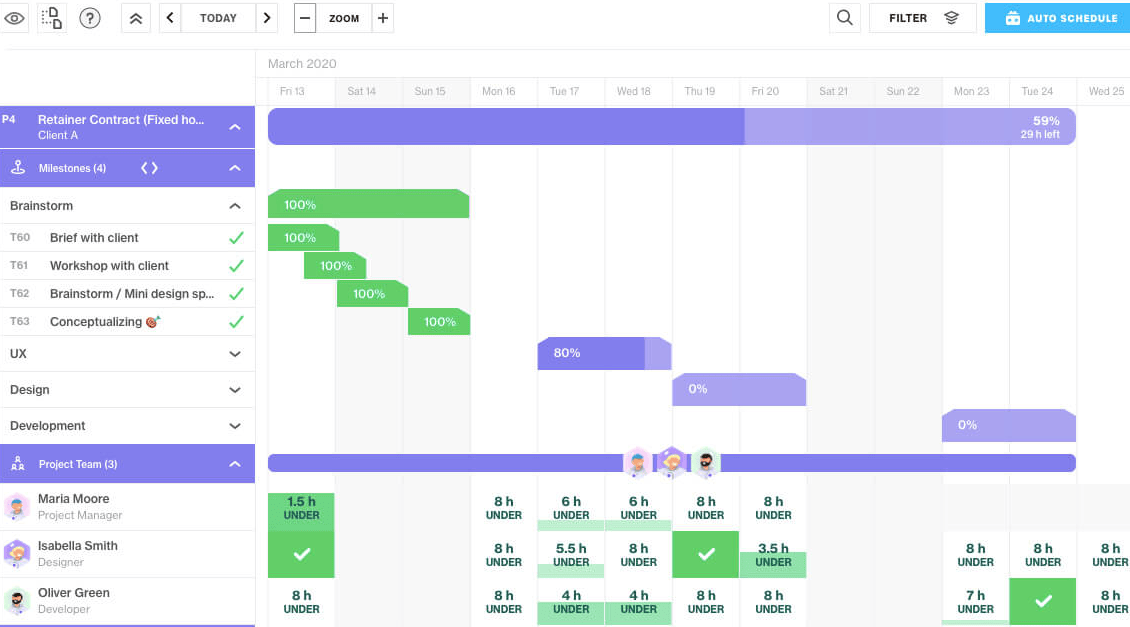
Forecast is a project management tool that is particularly well-suited for data-driven project management. It offers a wide range of features that cater to various aspects of project management, including task decomposition, resource management, and predictive analytics. Forecast's advanced capabilities make it an ideal choice for organizations that require a high level of customization and control over their project management processes. The tool supports various project views, such as Gantt charts, resource histograms, and portfolio dashboards, which provide different perspectives on project progress and task dependencies.
One of the standout features of Forecast is its robust predictive analytics capabilities. The tool uses machine learning algorithms to predict project outcomes, resource needs, and potential risks, ensuring that teams can make informed decisions and proactively manage projects. This is particularly useful for organizations that operate in dynamic and unpredictable environments, where accurate forecasting is essential for project success. Forecast also offers a wide range of integrations with other tools, such as Jira, Salesforce, and Microsoft Project, further enhancing its functionality and making it a versatile solution for project management.
For teams looking to adopt a more strategic approach to task decomposition, Forecast's resource management features are a significant advantage. The tool allows organizations to allocate resources, track utilization, and manage capacity, ensuring that projects are staffed appropriately and that resources are used efficiently. Additionally, Forecast's reporting and analytics features provide valuable insights into project performance, helping teams to identify areas for improvement and make data-driven decisions. This holistic approach to project management ensures that teams can effectively decompose tasks, manage workloads, and deliver projects on time and within budget.
Plaky
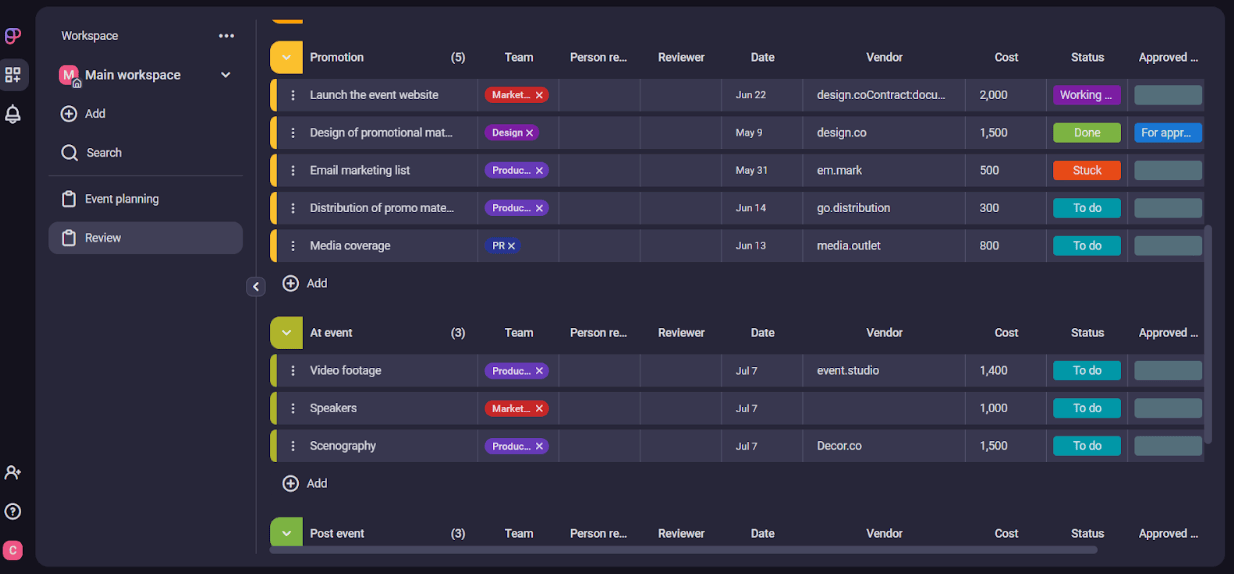
Plaky is a simple yet powerful project management tool that is particularly well-suited for small teams and startups. It offers a wide range of features that cater to various aspects of project management, including task decomposition, collaboration, and time tracking. Plaky's intuitive interface and robust features make it a popular choice for teams looking to manage complex projects with multiple dependencies and stakeholders. The tool supports various project views, such as lists, boards, and timelines, which provide different perspectives on project progress and task dependencies.
One of the standout features of Plaky is its robust collaboration capabilities. The tool allows teams to communicate directly within tasks, attach files, and leave comments, ensuring that all relevant information is centralized and accessible. This is particularly useful for small teams and startups, where effective communication is essential for project success. Plaky also offers a wide range of integrations with other tools, such as Slack, Google Drive, and Microsoft Teams, further enhancing its functionality and making it a versatile solution for project management.
For teams looking to adopt a more structured approach to task decomposition, Plaky's templates and workflows are invaluable. The tool offers a variety of pre-built templates for different types of projects, such as marketing campaigns, product launches, and software development. These templates can be customized to fit the specific needs of a project, ensuring that teams can effectively plan and execute their work. Additionally, Plaky's reporting and analytics features provide valuable insights into project performance, helping teams to identify areas for improvement and make data-driven decisions. This holistic approach to project management ensures that teams can effectively decompose tasks, manage workloads, and deliver projects on time and within budget.
Celoxis
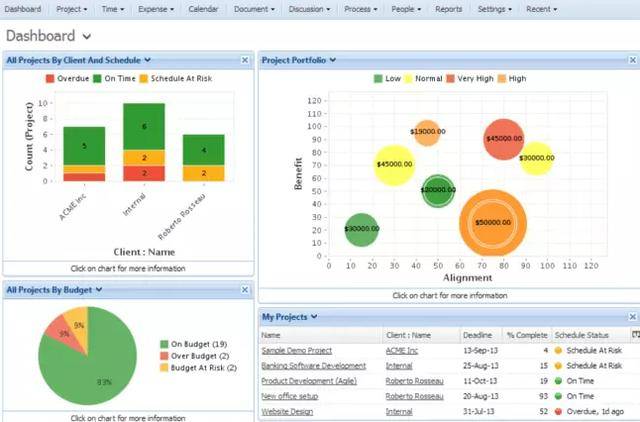
Celoxis is a comprehensive project management tool that is particularly well-suited for mid to large-sized enterprises. It offers a wide range of features that cater to various aspects of project management, including task decomposition, resource management, and portfolio management. Celoxis' advanced capabilities make it an ideal choice for organizations that require a high level of customization and control over their project management processes. The tool supports various project views, such as Gantt charts, resource histograms, and portfolio dashboards, which provide different perspectives on project progress and task dependencies.
One of the standout features of Celoxis is its robust resource management capabilities. The tool allows teams to allocate resources, track utilization, and manage capacity, ensuring that projects are staffed appropriately and that resources are used efficiently. This is particularly useful for mid to large-sized enterprises, where managing complex resource requirements is a critical aspect of project success. Celoxis also offers a wide range of integrations with other tools, such as ERP systems, financial management software, and collaboration platforms, further enhancing its functionality and making it a versatile solution for project management.
For teams looking to adopt a more strategic approach to task decomposition, Celoxis' portfolio management features are a significant advantage. The tool allows organizations to prioritize projects, allocate budgets, and track performance across multiple portfolios, ensuring that resources are aligned with strategic objectives. Additionally, Celoxis' reporting and analytics features provide valuable insights into project performance, helping teams to identify areas for improvement and make data-driven decisions. This holistic approach to project management ensures that teams can effectively decompose tasks, manage workloads, and deliver projects on time and within budget.
Plutio
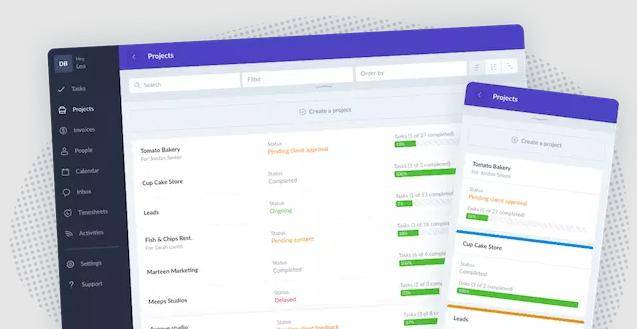
Plutio is a versatile project management tool that is particularly well-suited for freelancers and small businesses. It offers a wide range of features that cater to various aspects of project management, including task decomposition, time tracking, and invoicing. Plutio's intuitive interface and robust features make it a popular choice for teams looking to manage complex projects with multiple dependencies and stakeholders. The tool supports various project views, such as lists, boards, and timelines, which provide different perspectives on project progress and task dependencies.
One of the standout features of Plutio is its robust invoicing capabilities. The tool allows teams to create and send invoices directly from the platform, ensuring that billing is streamlined and efficient. This is particularly useful for freelancers and small businesses, where managing finances is a critical aspect of project success. Plutio also offers a wide range of integrations with other tools, such as QuickBooks, Google Drive, and Microsoft Teams, further enhancing its functionality and making it a versatile solution for project management.
For teams looking to adopt a more collaborative approach to task decomposition, Plutio's collaboration features are a significant advantage. The tool allows teams to share files, leave comments, and assign tasks directly within the platform, ensuring that all relevant information is centralized and accessible. Additionally, Plutio's reporting and analytics features provide valuable insights into project performance, helping teams to identify areas for improvement and make data-driven decisions. This holistic approach to project management ensures that teams can effectively decompose tasks, manage workloads, and deliver projects on time and within budget.
Conclusion
In conclusion, task decomposition is a critical aspect of project management, and the right tools can make all the difference in ensuring project success. The ten tools discussed in this article—ZenTao, Asana, Smartsheet, Planisware, Targa, Paymo, Forecast, Plaky, Celoxis, and Plutio—offer a wide range of features and capabilities that cater to different types of projects and teams. Whether you are managing a small startup or a large enterprise, these tools provide the functionality and flexibility needed to effectively decompose tasks, manage workloads, and deliver projects on time and within budget.
FAQ
1.What is task decomposition in project management?
Task decomposition is the process of breaking down complex projects into smaller, more manageable tasks. This process is essential for effective planning, execution, and monitoring, as it allows teams to assign responsibilities, set deadlines, and track progress more efficiently.
2.How do these project management tools help with task decomposition?
These tools offer a variety of features that facilitate task decomposition, such as task breakdown, subtask creation, and dependency tracking. They also provide different project views, like Gantt charts and Kanban boards, which help visualize project progress and task dependencies, making it easier to manage complex projects.
3.Which tool is best for small teams?
Plaky and Plutio are particularly well-suited for small teams and freelancers. They offer intuitive interfaces, robust collaboration features, and essential project management functionalities, making them ideal choices for small-scale projects and businesses.
ARTICLE TITLE :Task decomposition artifact: 10 high-quality project management tools recommended ,AUTHOR :ITpmlib

